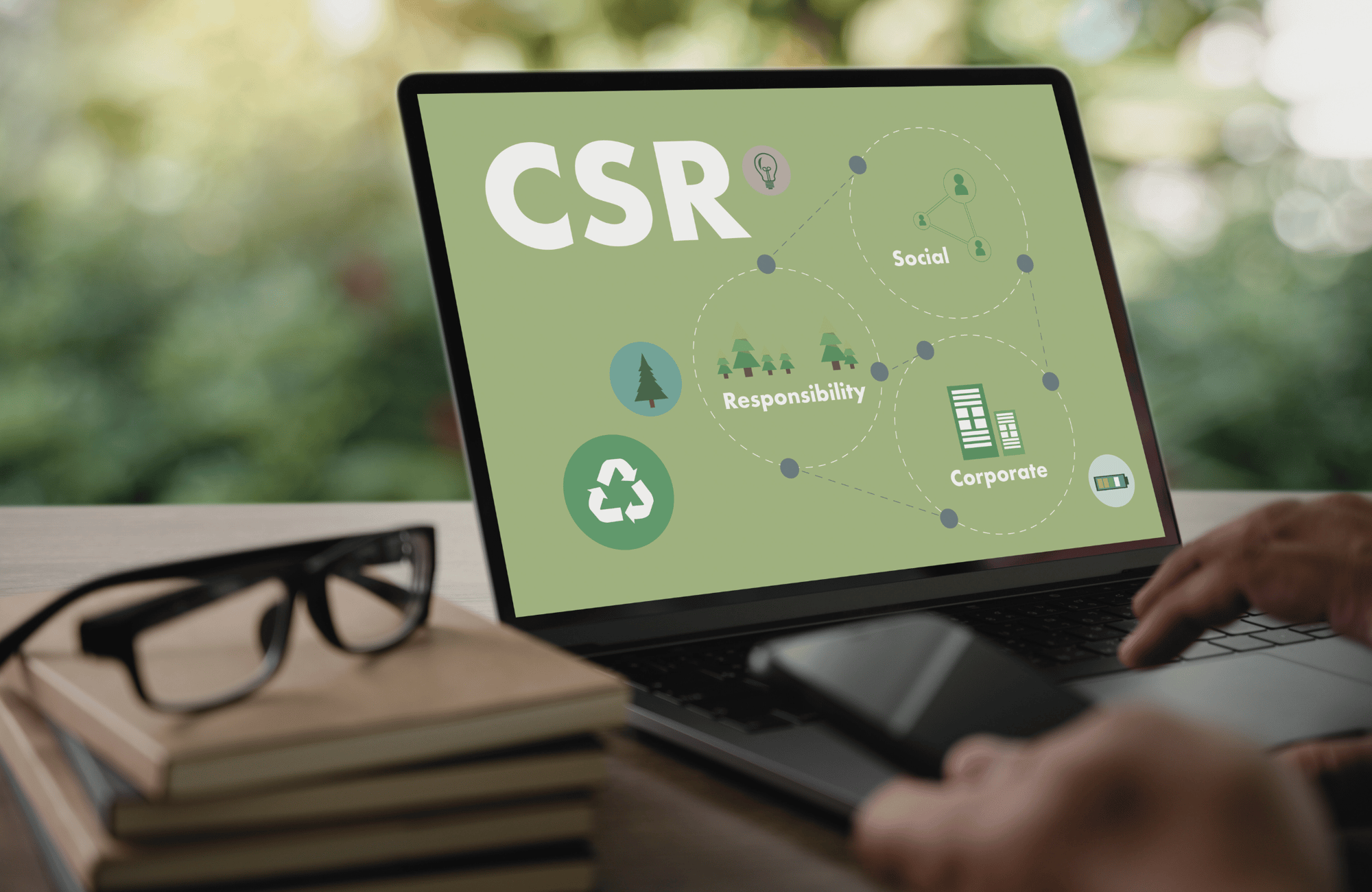Measuring and Reporting CSR Impact

Measuring and Reporting CSR Impact
Posted on July 8, 2024

Corporate social responsibility (CSR) is a major area of focus for businesses hoping to improve their communities.
To show their dedication to social responsibility, businesses must measure and report on the results of their CSR initiatives. Impact measurement means establishing comprehensive tools and frameworks for measuring CSR programs. Measuring and reporting the impact of CSR initiatives is crucial for companies to demonstrate their commitment to social and environmental responsibility as well as to improve their practices.

CSR Impact Metrics
CSR impact measurement refers to the assessment of a company's CSR initiatives. Three tangible and intangible metrics highlight the social, environmental, and economic benefits of CSR initiatives. Using these three components help quantify the effects of CSR:
- Output Measurement: assesses the results of CSR activities in real time, giving a quick assessment of the initiative.
- Outcome Measurement: looks at the longevity of CSR initiatives, evaluating how they impact and affect the community.
- Impact Assessment: takes a broader perspective of CSR initiatives, and can help determine goals for the community.
By using these metrics an organization can fully understand their effects and determine long-term goals for their initiatives. 
Corporate Responsibility Reporting
Disclosing information about a company's social, environmental, and economic activities assures accountability and shows transparency to stakeholders, members of the community, investors, and employees that your CSR program will continue to produce the intended outcomes. Communicating CSR efforts demonstrates a commitment to creating positive programs and keeping them aligned with the community. 
Sustainability Reporting Guidelines
Sustainability reporting guidelines are frameworks that help organizations disclose their environmental, social, and economic initiatives. Guidelines, such as the Global Reporting Initiative (GRI) Standards and the Sustainability Accounting Standards Board (SASB) Standards, provide standardized methods for measuring and reporting sustainability efforts.
There are 10–15 internationally established reporting guidelines, although their relativity depends on how an organization conducts them. By choosing an established guideline and adhering to it, companies can ensure legitimacy in their reports, enabling stakeholders to better understand the company's impact initiatives. These guidelines help organizations identify areas for improvement, set goals, and track progress, which drives more effective strategies. 
Social Impact Measurement
Organizations integrate social impact into their social responsibility efforts. This includes impact investment funders seeking to create new projects and businesses, foundations looking to make a positive community impact, and nonprofits searching to gain a deeper understanding of their impact. Social impact measurement refers to the process of assessing the social outcomes of CSR initiatives. It involves identifying the intended social outcomes, measuring progress towards those outcomes, and evaluating the overall impact on society.
When looking at measuring social impact, it's more than choosing an initiator and indicators on how to measure it. Andrew Dillon, a development economist and clinical associate professor at Kellogg, says, “It’s not just about choosing metrics, indicators, or some sort of variable to measure. Those things are important,” he says, but the real key “is to link whatever the investment or program is to a ‘theory of change’ as to how that investment or program is actually going to change the lives of beneficiaries.”
CSR Evaluation Methods
After deciding on your goals and key performance indicators, you must decide on the evaluation methods to use for data collection, analysis, and reporting. These are the methodologies used to assess the effectiveness of CSR initiatives. Evaluation methods come in a variety of forms, including case studies, audits, focus groups, questionnaires, interviews, and observations. Depending on your needs and available resources, you can employ one or more of these approaches.
To make data collection and analysis easier, you must also choose the right tools. Examples of these tools include software, platforms, frameworks, and models. The Global Reporting Initiative (GRI), the Balanced Scorecard (BSC), and the Social Return on Investment (SROI) are a few examples of well-liked instruments for CSR assessment.
ESG Initiatives
IMPACT Parks focuses on ESG initiatives because environments, social growth, and governance are at the heart of our mission. Making a positive impact can seem easy but choosing a project can be difficult. Luckily with IMPACT Parks ESG initiatives, there is no need to choose between healthy habits, green spaces, sustainability, or equality.
Making an environmental and societal impact is difficult to complete without having governance. Having governance creates structure for goals, from CSR efforts to tax strategies, or just wanting to make a positive impact. IMPACT Parks understands the importance of providing trackable progress and measurable data, to leave you feeling confident in your mission.
Start Making Your IMPACT
Measuring and reporting CSR initiatives helps organizations show their dedication to positive social and community impact. Companies can evaluate, manage, and evolve their CSR initiatives successfully by utilizing CSR impact measurements, sustainability reporting guidelines, and CSR methodologies. Through these practices, companies can create a positive impact. To start your IMPACT Parks CSR project with measurable data reporting, contact us here.

